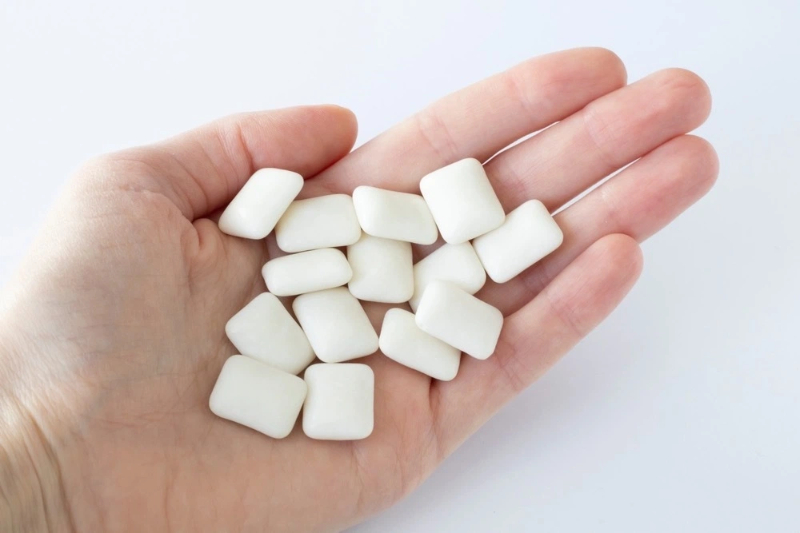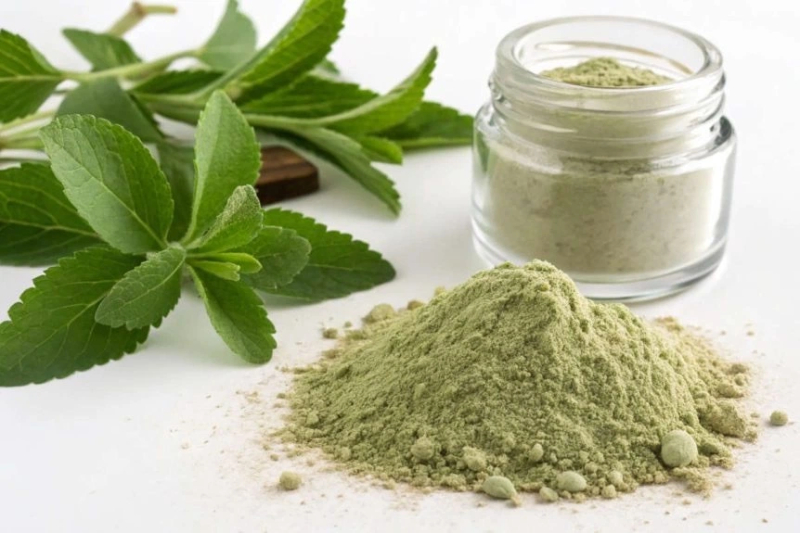







Content Menu
● Stevia and Cancer: Is There a Link?
>> Early Concerns and Toxicity Studies
>> Scientific Research on Anticancer Properties
>> Advanced Research: Fermented Stevia and Pancreatic Cancer
● Safety and Side Effects of Stevia
>> Side Effects
● Health Benefits of Stevia Beyond Sweetening
● Common Misconceptions About Stevia and Carcinogenicity
● Summary of Scientific Consensus
● FAQ
>> 1. Is stevia safe to consume every day?
>> 2. Can stevia cause cancer?
>> 3. Are all forms of stevia equally safe?
>> 4. Does stevia interact with medications?
>> 5. What are the benefits of stevia beyond sweetness?
Stevia, derived from the plant Stevia rebaudiana, is a natural sweetener gaining popularity as a safe, zero-calorie sugar substitute. Given its widespread use, many wonder whether stevia is carcinogenic or safe for consumption, particularly in food, beverage, and healthcare industries. This article explores the current scientific research on stevia, investigating any potential link to cancer, addressing safety concerns, highlighting benefits, and clarifying common questions.

Stevia is a South American plant cultivated for producing natural sweeteners extracted mainly from its leaves. The primary sweet compounds are steviol glycosides (SGs)—notably stevioside and rebaudioside A—which are 200-400 times sweeter than table sugar. These compounds provide sweetness without added calories and are often used in liquid or powder form under brand names like Pure Via, SweetLeaf, and Truvia. Stevia sweeteners are commonly found in various foods, beverages, and dietary supplements, especially targeting people reducing sugar intake.
Initial concerns about stevia's carcinogenic potential originated from studies suggesting weak genetic toxicity at excessively high doses equivalent to consuming thousands of cups of coffee daily. In 2002, a study showed slight mutagenic activity of steviol at unrealistically high levels, but in typical dietary amounts, this toxicity is considered negligible and safe.
Both the U.S. Food and Drug Administration (FDA) and the American Cancer Society regard stevia, particularly purified steviol glycosides, as safe when consumed in moderation. The FDA sets an acceptable daily intake (ADI) at 4 mg per kilogram of body weight per day—roughly nine packets for an average adult. Whole-leaf stevia and crude extracts, however, lack full FDA approval due to insufficient safety data.
Interestingly, multiple studies indicate that stevia and its derivatives may exhibit anti-cancer properties rather than cause cancer:
- Steviol glycosides have been observed causing cytotoxicity in several cancer cell lines, including leukemia, breast, lung, and stomach cancers.
- Research on breast cancer cell lines revealed that steviol and stevioside induce apoptosis (programmed cell death) and cell cycle arrest, reducing cancer cell viability.
- Animal studies report decreased tumor incidence or delayed tumor promotion when treated with stevia metabolites.
- Mechanistic studies suggest stevia compounds can inhibit key enzymes involved in DNA replication and cholesterol synthesis, both crucial for cancer cell growth.
Extending the body of research, a landmark 2025 study from Hiroshima University in Japan has identified a novel anticancer potential when stevia leaf extract is fermented with specific probiotics, notably Lactobacillus plantarum SN13T derived from banana leaves.
- This fermentation process transforms stevia's bioactive compounds, producing chlorogenic acid methyl ester (CAME), a metabolite with potent effects.
- In laboratory tests on pancreatic cancer cell lines (PANC-1), fermented stevia leaf extract (FSLE) demonstrated significant cytotoxicity, inducing cancer cell apoptosis while sparing healthy kidney cells.
- The mechanism includes arresting cancer cell growth in the G0/G1 phase and altering gene expressions that promote programmed cell death.
- Additionally, FSLE showed enhanced antioxidant activity, helping neutralize oxidative stress—a known cancer risk factor.
- This discovery offers hope against pancreatic cancer, a disease with poor prognosis and limited treatment options.
- Researchers plan further animal model studies to confirm therapeutic effectiveness and dosage.
This pioneering use of microbial biotransformation illustrates the untapped capacity of combining probiotics and natural plants for potentially groundbreaking cancer treatments.

While purified steviol glycosides are generally recognized as safe (GRAS), some groups should exercise caution:
- Pregnant or breastfeeding women: Safety data are limited for whole-leaf or crude stevia during pregnancy or lactation.
- Individuals with kidney or liver disorders: Data are insufficient to advise unchecked usage.
- People on certain medications for diabetes or hypertension: Stevia may interact with these drugs, influencing blood sugar or blood pressure levels.
Most people tolerate purified stevia well, with the common side effects being mild digestive discomfort or nausea in some cases. It's important to distinguish these from the reactions to blends containing other sweeteners or fillers. Always check product ingredient lists.
Beyond its role as a sugar alternative, stevia offers several promising health benefits:
- Blood Sugar Control: Stevia does not raise blood glucose and may improve insulin sensitivity, benefiting diabetic individuals.
- Weight Management: Replacing calorie-rich sugar with stevia may aid in reducing caloric intake, supporting healthy weight loss efforts.
- Oral Health: Stevia is non-cariogenic, meaning it does not promote tooth decay unlike sugar.
- Anti-inflammatory Effects: Studies suggest stevia and its components possess anti-inflammatory properties, which could help manage chronic diseases.
- Antioxidant Activity: Both unfermented and fermented stevia extracts combat oxidative stress, a factor linked to chronic illness including cancer.
- Emerging Anticancer Potential: As noted, fermented stevia extracts show selective toxicity to cancer cells and may eventually be developed into complementary cancer therapies.
- Stevia is a synthetic artificial sweetener: False. Stevia is a natural plant-derived sweetener, unlike synthetic sweeteners such as aspartame or sucralose.
- All stevia products are FDA approved: Only purified steviol glycoside extracts are FDA-approved as food additives; whole-leaf products have limited regulatory acceptance.
- Stevia causes cancer: No credible scientific evidence supports this claim; current research even suggests possible anticancer properties.
Overall, stevia, especially in its purified form, is considered safe and non-carcinogenic by leading health authorities worldwide. Research is actively evolving with exciting new findings, particularly into fermented stevia's bioactive compounds that may offer therapeutic benefits far beyond those traditionally attributed to sweeteners.
Stevia, particularly its purified components steviol glycosides, is not carcinogenic when consumed within recommended limits. Scientific evidence largely supports its safety and even suggests potential anticancer properties through mechanisms like apoptosis induction and metabolic regulation. More recent research, including fermentation-enhanced extracts, highlights a promising frontier in natural cancer therapy, especially for difficult cancers such as pancreatic cancer. However, crude stevia extracts and whole-leaf forms should be used cautiously, especially for vulnerable groups. Continued research is essential to fully understand stevia's health impacts and optimize its use as a natural sweetener and health-promoting agent.

Yes, purified stevia extracts are safe in moderation. The FDA's acceptable daily intake is 4 mg per kg of body weight, equivalent to about nine packets per day for an average adult.
Current research shows no evidence that stevia causes cancer. Some studies even suggest it may have anticancer properties, but human clinical trials are needed.
No. Purified steviol glycosides are generally recognized as safe, but whole-leaf stevia and crude extracts lack full FDA approval and may present safety concerns.
Stevia may interact with medications such as those for diabetes and hypertension. Consulting a healthcare professional before use is advisable.
Stevia may help with blood sugar control, weight management, inflammation reduction, oral health improvement, antioxidant support, and possibly anticancer effects.
[1](https://scitechdaily.com/scientists-supercharge-sugar-substitute-and-it-starts-killing-cancer/)
[2](https://ecancer.org/en/news/26775-stevia-leaf-extract-has-potential-as-anticancer-treatment-researchers-find)
[3](https://theconversation.com/from-sweetener-to-cancer-fighter-fermented-stevia-shows-promise-in-pancreatic-cancer-study-261599)
[4](https://pubmed.ncbi.nlm.nih.gov/40362423/)
[5](https://nypost.com/2025/08/04/health/stevia-could-hold-untapped-potential-to-fight-cancer-study/)
[6](https://www.lesscancer.org/can-stevia-cause-cancer/)
[7](https://www.upmc.com/media/news/073125-artificial-sweetner)
[8](https://connect.mayoclinic.org/discussion/new-study-with-stevia-leaf/)
[9](https://www.sciencedirect.com/science/article/pii/S2666154325003515)
